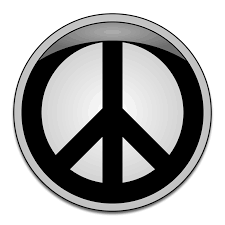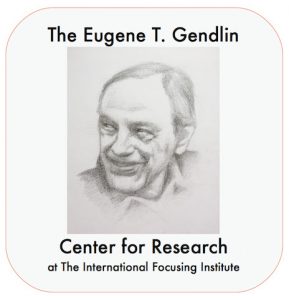Here is a brief description of the process and attitude of Focusing as a model for group decision making and social change. Greg Madison, PhD.
CONTINUOUS DEMOCRACY
A continuous democracy has no border, boundary or limit. It does not artificially end when we need to make a decision in our group, or at the edge of my body, or at the end of my road, or at the local community level. There is no level of organisation where we default to a dictatorship of the majority or accept that some expert’s voice carries more weight or should be louder than all the rest. It is a living democracy that never stops re-opening concepts and roles and structures that become subtly rigid and thus threaten the very life they were created to serve.
Continuous democracy always comes from the individual’s concrete feeling of being bodily alive and trusts that experience as a creative source more important than tradition and convention. This kind of democracy goes all the way down to the essence of a person, all the way inside, and then it carries itself all the way up and all the way out to be expressed in our way of gathering together.
An individual person is a ‘community’, not a ‘unified oneness’. We all have various ‘parts’ of ourselves, vulnerable and insecure parts, parts that we are ashamed of or have cast into exile, manipulative or critical defensive parts… Each part is welcomed back with equality. A person is a democracy when she/he can openly listen to (not necessarily agree with) all parts of her/himself with equality and compassion. Why can’t this attitude in the inner world move in a continuity to the largest human gatherings? Continuous democracy values the process of listening to oneself and to each other in a way that feelings and opinions begin to naturally loosen and shift. It is the opposite of attempts to achieve agreement through the pressure to conform, subtle group oppression or rejection, attempts to compel, convince, control or cajole rather than listen carefully for the wisdom contained within each person in the group.
To reduce a person to only their rational capability or their logical part is to silence and oppress the essence of the creative human spirit. In every decision, opinion and thought, there is feeling. Even if the rational decision is ‘correct’, ‘personal’ feelings need to be listened to or the decision will be half-hearted, will leave people behind, or never be carried out. Our feelings are informed by our unique experiences of life – they are deeply personal yet also contain wisdom about the current situation. A good decision includes each person’s unique sense of the question at hand.
A feature of this democracy is that it asks us to be open with one another, not to put our ideas, our technology, the ‘project’ or ‘organisation’, or some mission, in-between self and other so that we cannot directly contact another person. Can we put the personal contact first? I want to make sure I can see the person looking out at me and that we are connected as two (or more) people, then let an idea or a project be discussed. But don’t let the project or task cloud the connection. Don’t mediate the connection through an abstract thing, have a clear connection first and try to keep it clear… If our connection as humans does not matter, then nothing else matters anyway.
“What matters is to be a human being with another human being, to recognize the other person as another being in there. … I am just here, with my eyes, and there is this other being. If they happen to look into my eyes, they will see that I am just a shaky being. I have to tolerate that. They may not look. But if they do, they will see that. They will see the slightly shy, slightly withdrawing, insecure existence that I am, I have learnt that that is O.K. I do not need to be emotionally secure and firmly present. I just need to be present. There are no qualifications for the kind of person I must be. … I may express my feeling, but I always know that it is just my feeling. I do not know yet what is coming from that person. The minute something goes wrong I go right back to trying to sense this person; to what is happening. Because this is another being, a different being”
(Eugene Gendlin, contemporary philosopher).




